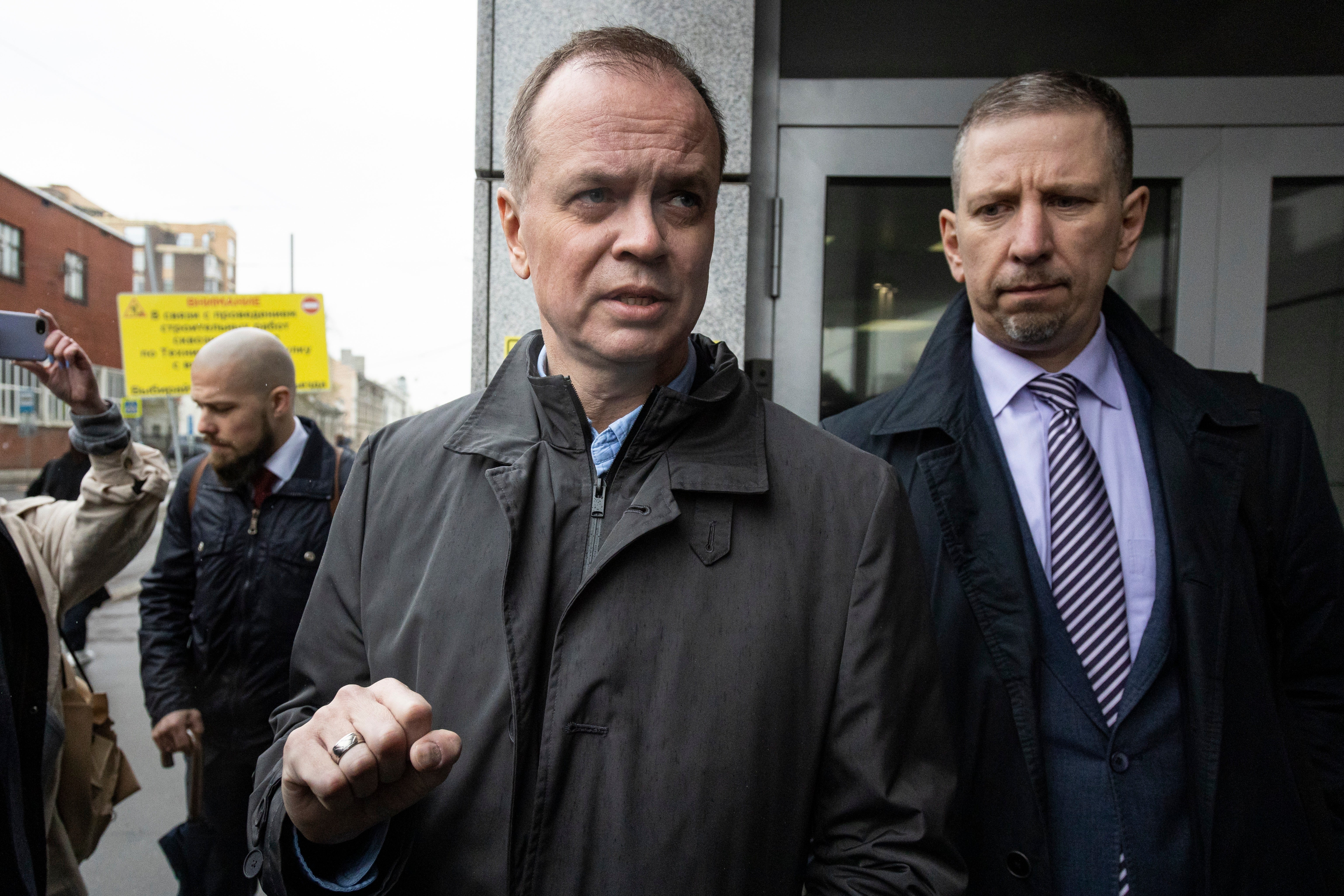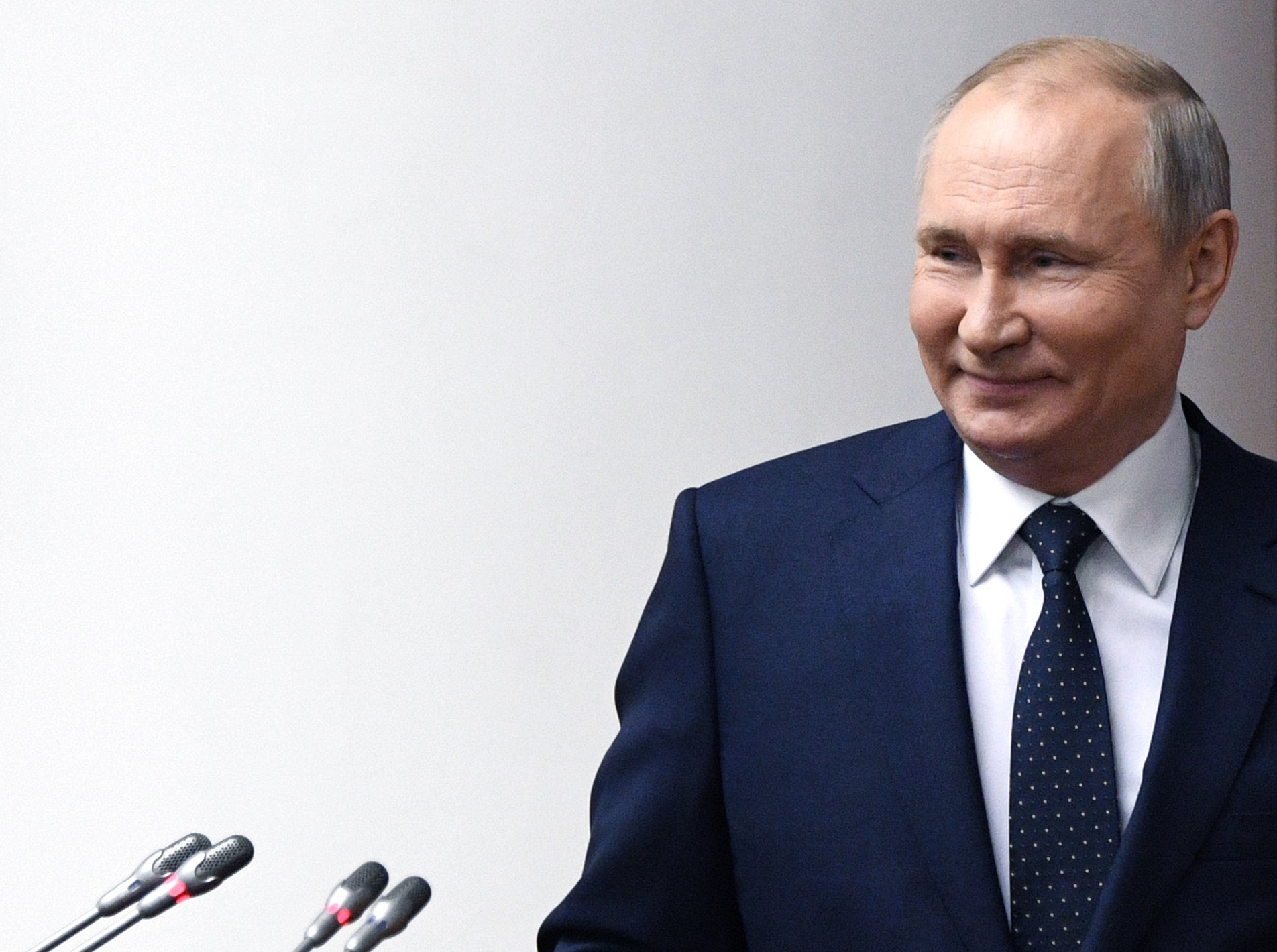‘He irritates them because he’s smart’: Russia opens new front with arrest of high-profile opposition lawyer
Ivan Pavlov represented Alexei Navalny’s anti-corruption organisation alongside many others facing dubious espionage charges

In a campaign coordinated across Russia’s two major cities, authorities on Friday raided several addresses connected to an opposition lawyer known for his work taking on the FSB, the country’s increasingly assertive security agency.
Ivan Pavlov, in Moscow to represent former journalist Ivan Safronov in a controversial espionage trial, was himself detained in his hotel room at 6am. Meanwhile, 430 miles northwest in St Petersburg, raids commenced at the office of his legal organisation, his family flat, and an apartment belonging to his IT manager.
A colleague said Mr Pavlov was being held under suspicion of disclosing secret court evidence. But the lawyer’s crime appears to be broader – getting under the skin of the FSB with what friends describe as a “pedantic” approach to the law. His detention sends out a clear warning to other lawyers intending to cause difficulties for the state.
Specialising in cases involving intelligence or espionage, Mr Pavlov took on the most sensitive cases produced by Russia’s legal system. The lawyer’s current caseload includes representing the legal structures of jailed opposition leader Alexei Navalny against extremism charges.
His defence of journalist Safronov in particular seems to have led to a public spat with the FSB.
The case has been cloaked in secrecy from the onset, with Mr Safronov yet to receive a clear explanation of the charges he faces. Mr Pavlov refused to sign documents formally classifying the proceedings, saying state secrets were already covered under existing laws.
He said the request amounted to an attempt to gag Mr Safronov’s legal team.
“They are denying us the possibility of a decent defence by disclosing the outrageous aspects of the case,” he said at the time.
In comments made on his Facebook page, Yevgeny Smirnov, a colleague at Team 29 – an association of Russian lawyers and journalists advocating for the rights of the country’s citizens to access information – alleged Mr Pavlov had received several direct threats from FSB investigators working on the Safronov case warning him about arrest.
“They told him straight up: You have got stuck in our throat, and we will do everything to put you in prison,” Mr Smirnov wrote.
Those who know Mr Pavlov describe him as a “meticulous professional,” analytical, and with an unrivalled understanding of the law.
Grigory Pasko, a military journalist who Mr Pavlov represented in two high-profile espionage trials in the late 1990s and early 2000s, told The Independent state investigators had become “irritated” by him because he was “so smart.” It was almost “surprising” that the FSB had “taken so long” to arrest him, he added.
“Ivan is a trained mathematician, which you can see in every aspect of his work,” he said. “He doesn’t like making mistakes and he doesn’t generally make them.”
They had decided to do so now for three reasons, Mr Pasko suggested.
First, to deter Mr Pavlov’s professional team from taking on cases involving the security agencies. Second, to act as a pretext to return the privilege of appointing in-house lawyers in secrecy trials, essentially removing the profession from courtrooms. Third, to frighten independent lawyers in general.
Russia’s security agencies appear to be operating with greater freedom following the Kremlin’s declared victory in last July’s constitutional vote. That vote handed Mr Putin the keys to stay in power until 2036. Since then – and with the poisoning, evacuation, return and jailing of Alexei Navalny in the background – the state’s repressive apparatus has gone into overdrive.
With an intensity unseen since the days of the Soviet Union, authorities have arrived with search warrants at homes of dozens of opposition figures, activists and journalists.

Lawyers have mostly been spared from direct intimidation. But in a Kafkaesque foregrounding to his own problems, Ivan Pavlov raised the alarm about such arrests beginning in the regions. He even founded an organisation called the Prague Club to defend lawyers facing such problems.
Pavel Chikov, who heads a legal advocacy NGO called Agora, said it appeared that the state had now decided to “use the criminal code” against the entire legal profession.
Later on Friday, a court sat without Mr Pavlov to decide on holding terms for Ivan Safronov, who has already spent nearly 10 months in jail.
The absence of defence counsel did not affect the outcome particularly, with a judge swiftly agreeing to the prosecution’s request to extend pre-trial detention for two more months until July.
Join our commenting forum
Join thought-provoking conversations, follow other Independent readers and see their replies
Comments
Bookmark popover
Removed from bookmarks